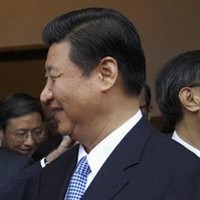Following considerable speculation that it would be postponed or even cancelled, the 18th National Congress of the Chinese Communist Party (CCP) will convene in Beijing on Nov. 8. The meeting marks the beginning of the final leg of China's extended leadership transition process and should give greater clarity on China's direction in the coming decade.
Over the past two years, China's intricate and opaque leadership structure has been shaken to the core by a series of high-profile political scandals amid elevated economic uncertainty. Major disagreements on how to respond to these challenges have riven elite groups, and the factional coalition assembled and managed -- largely successfully -- by President Hu Jintao over the past decade has risked breaking apart as the party scrambled to contain its most profound crisis of legitimacy since 1989.
Although key issues and personnel appointments remain unsettled, the announcement of the November congress coincides with other signals that what has appeared at times to be gridlock at the upper political echelons is easing.

